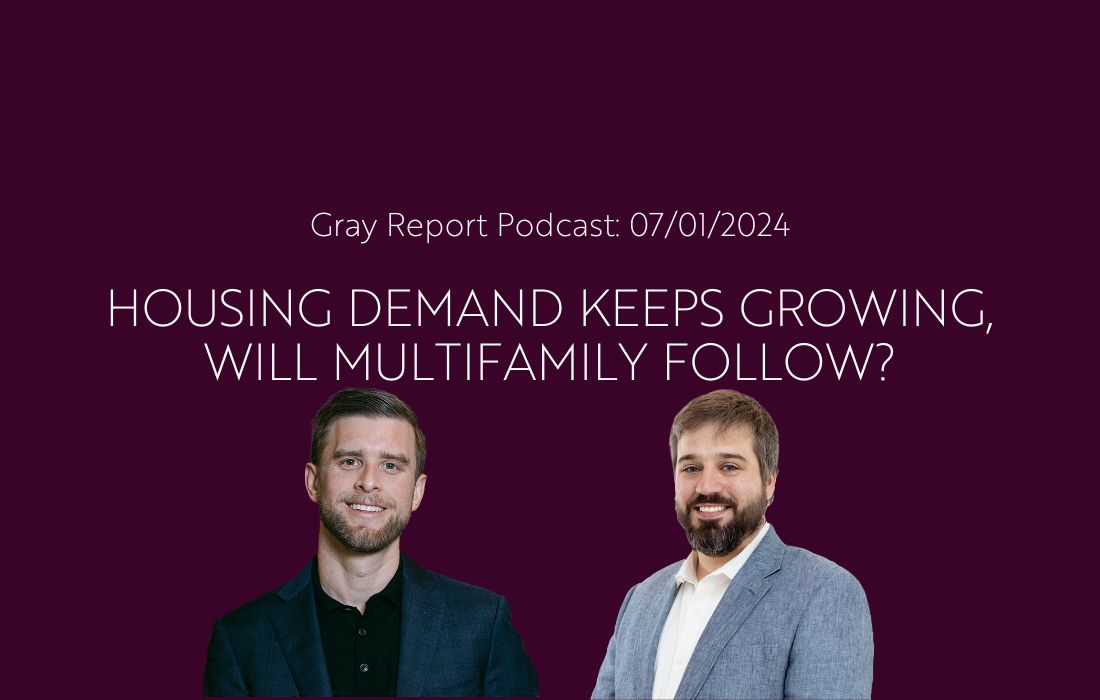
Podcast: Housing Demand Keeps Growing, Will Multifamily Follow?
Listen to the latest episode of The Gray Report Podcast and stay up to date on the most important news and research in the multifamily industry, commercial real estate, and the economy.
The Gray Report on Apple Podcasts